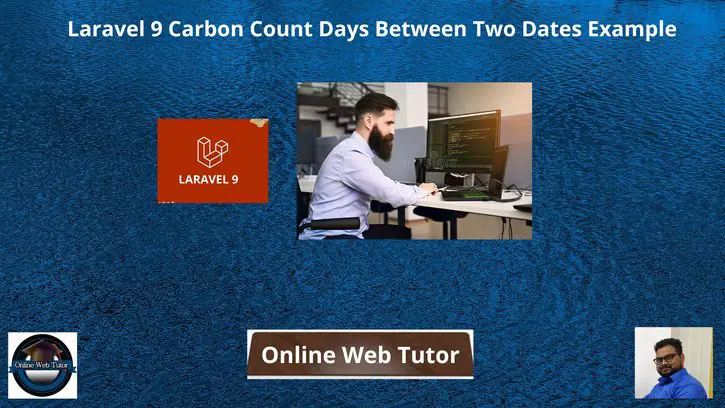Inside this article we will see the concept i.e Laravel 9 Carbon Count Days Between Two Dates Example. Article contains the classified information about find the days difference between two dates using Laravel carbon.
If you are looking for a solution i.e Laravel carbon package to get difference between two dates in days application then this article will help you a lot for this. Tutorial is super easy to understand and implement it in your code as well.
Read More: How To Generate PDF Using Laravel TCPDF Library Tutorial
What is Carbon in laravel?
Laravel framework uses a simple API extension to work with the date and time called Carbon. It’s a class.
Let’s get started.
Laravel Installation
Open terminal and run this command to create a laravel project.
composer create-project laravel/laravel myblogIt will create a project folder with name myblog inside your local system.
To start the development server of laravel –
php artisan serveURL: http://127.0.0.1:8000
Assuming laravel already installed inside your system.
How To Get Days Difference Between Dates
Open project into terminal and run this command.
$ php artisan make:controller DemoControllerIt will create a DemoController.php file inside /app/Http/Controllers folder.
Read More: Laravel How to Get All env Variables Example Tutorial
Open file and write this code into it.
<?php
namespace App\Http\Controllers;
use Illuminate\Http\Request;
use Carbon\Carbon;
class DemoController extends Controller
{
public function index()
{
$startDate = Carbon::parse("2022-10-28");
$endDate = Carbon::parse("2022-11-21");
$diffInDays = $startDate->diffInDays($endDate);
dd($diffInDays);
}
}
Output
24Total number of days difference you can see between the two given dates.
We hope this article helped you to learn Laravel 9 Carbon Count Days Between Two Dates Example in a very detailed way.
If you liked this article, then please subscribe to our YouTube Channel for PHP & it’s framework, WordPress, Node Js video tutorials. You can also find us on Twitter and Facebook.
